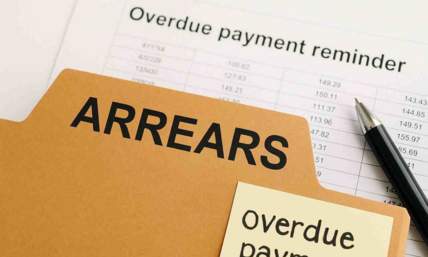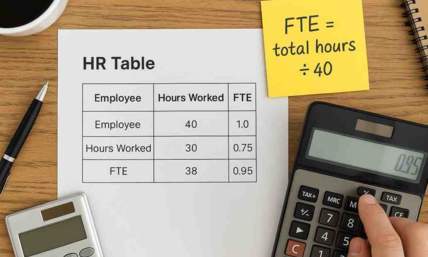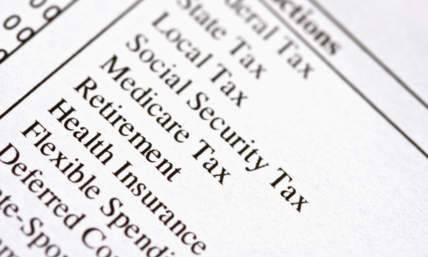Easy Steps To Remove MRS Associates From Your Credit Report
Debt collection agencies can be terrifying at the best of times, even more so when you take into account the potential impact on your credit score, or any nasty lawsuits down the road.
But never fear, there are several simple steps you can take to resolve the debt and get debt collection agencies stricken from your credit report.
But first, who exactly are MRS Associates?

MRS Associates
Founded in 1991, and based in Cherry Hill, New Jersey, MRS Associates (or MRS BPO, LLC) is a debt collection agency rated “A+” by the Better Business Bureau (BBB).
MRS Associates collect for a variety of fields within the corporate sector, most notably telecommunications, student loans, auto loans, credit card companies, and healthcare insurance, meaning that at varying points throughout your life, you, or someone you know, could come into contact with them if debts have not been settled.
How They Work
Whilst they are debt collectors in practice, they do not collect on behalf of other companies. Instead, they attain your debt from your creditors at a reduced rate, before attempting to collect the debt in total from you, as well as any interest and penalties you might have accrued.
MRS Associates also align themselves with credit bureaus, and they will use this to their advantage when pursuing payment.
The main thing they will do is to report your debt to credit bureaus, which will ultimately lower your credit score, harming you financially in the future.
Are They Genuine?
Especially in modern times, when we are contacted by a company with whom we’ve had no prior dealings, we tend to assume they are phishing, or part of some other scam.
Of course, it is important to always query any supposed debt before even engaging with the company, especially if it isn’t something you are immediately aware of, or if it is with companies you have not previously dealt with.
That being said, MRS Associates are indeed a real, backed entity, and if they have indeed purchased your debt, and that debt is genuine, then they will have every legal right to pursue payment.

Potential Solutions
The best way to treat any problem is to meet it head on, to be in possession of the facts, and to be informed of your legal rights when it comes to debt collection agencies, and the extent of the power they have over you.
Learn Your Rights
Despite having the right to pursue payment regarding genuine claims, debt collection agencies are not all powerful, and there are clearly defined codes of conduct that they must obey.
Firstly, the company has to officiate their position as debt collectors, stating which company they work for, the debt in question, and its origins/history.
They also cannot call you before 8am or after 9pm. This is to avoid disruptions or potential feelings of harassment that could come with being called every hour of the day and night.
Similarly, debt collection companies cannot call your friends or family, or contact you at work or your place of business. The debt is between you and the company, and no one else should be involved, potentially contacted, nor made aware of your personal financial business
When it comes to communication, there should be no foul language, threats of violence, nor elements of intimidation. They also cannot legally threaten you with arrests, prison sentences, or seizure of assets or possessions.
For more information, the FDCPA (Fair Debt Collection Practices Act), contains a clear list of all the legal rights pertaining to you and the debt company.
Validate/Verify The Debt
Debt validation is an important aspect, and if it isn’t properly validated, then the debt isn’t collectable.
As of the 30th November 2021, all debt collection agencies must send you a “notice of debt” within 5 days of first contact. This requires them to provide a lot more information than previously, and goes some way to spell out exactly what is required from you going forward.
The notice of debt should include the date of the last statement/invoice provided to the customer, the charge off date, the date of the last payment charged to the debt, the date of the transaction that gave rise to the debt, and, if there is a court judgment on the debt, the judgment date.
The latter is particularly important when it comes to the statute of limitations, and whether the debt should still be listed on your credit report.
Furthermore, the notice of debt also contains information such as the name of the debt collector and their mailing address, the name of the customer and their mailing address, the name and address of the original creditor (if the debt pertains to a product, like a credit card), the associated account number, the name of the current creditor, the amount of current debt, and an itemized list of payments, interest, fees, or charges which have been made or accrued.
There should also be an attached form giving you the option to state that the debt is not yours, the amount of debt is wrong, or any other additional pieces of information that are relevant to the case.
This gives you the option to dispute the debt, of which you have a legal right (within a window of 30 days). After this time, an undisputed debt will be validated, and therefore legally collectable by the debt collection agency.
It is important to always dispute the debt where possible, querying information pertaining to verifying documentation, the statute of limitations, the license status of the agency in question, as well as any copies of associated billing statements.
If they cannot find the sufficient proof, then they have no legal recourse to pursue the debt. This is why it is important to dispute, even if you know the debt is genuine.
Also read: Do You List Credit Cards on the Loan Application?

Establish Boundaries
Before the 30th November 2021, debt collection agencies were legally allowed to call you an unspecified number of times throughout the day, creating a stressful and potentially hostile environment for the customer.
Since then, there is new legislation in place that allows the customer to not only clearly define when they are contacted, but also the specified channels through which they can do so.
Debt collection agencies can contact you via email and text message, which is a positive thing, as it ensures everything is time stamped and in writing.
If you do not want emails or text messages from the companies, you can write them a cease and desist letter telling them to stop contact upon receipt of the letter. This should be copied (with you maintaining the original) and sent to the company, with a return receipt request attached to prove it is genuine.
The new rules also state that debt collection agencies cannot contact you over the phone more than 7 times across 7 consecutive days, and that, once they do, they have to wait a further 7 days before phoning you again.
These steps might seem simple, or even stalling tactics, but they can provide you with some much needed space to breathe, reflect, or gather further resources, and so their importance shouldn’t be underestimated.
Also read: Find Retained Earnings
Take It Higher
Another option available to you is to go directly to the credit bureaus. This can be especially useful if you suspect the debt is not genuine, or if the debt collection agency cannot provide the necessary evidence to pursue the debt.
This can be done by filing a dispute, which can be done either online (through Equifax, Experian, or TransUnion), or via the credit bureaus mailing address.
Also read: What Are Assets, Liability, and Equity?
Pay For Delete
If the debt is in fact yours, then a settlement might be the way to go.
Most debt collection agencies make 4 cents on the dollar for the debt they buy, which gives you some room for negotiation. They could even accept less than the total debt and still claim a profit.
Negotiation is key, as is standing your ground. Start low and work upwards. Recent statistics show that most collection agencies will take 40-60% of the total debt, meaning that, depending on the amount, you could save thousands of dollars.
You could also make “pay for delete” one of the terms of your settlement. This literally means that once the debt is settled, they will delete your transaction from your credit record, maintaining your credit score and protecting your financial future.
Also read: The Average HR Business Partner Salary
Final Thoughts
And there we have it, several easy steps to ensure you are not only treated fairly, but are given a fighting chance when it comes to dealing with MRS Associates and other debt collection agencies.
Debt can be scary, but the important things to remember are to keep your cool, face the problem head on, gather information, and learn what exactly your rights are. You’ll thank yourself when the time comes!
If you haven't got the most efficient way to produce pay stubs for your employees, check out the pay stub maker today. It is so easy and convenient!
Also read: Sample Balance Sheet















